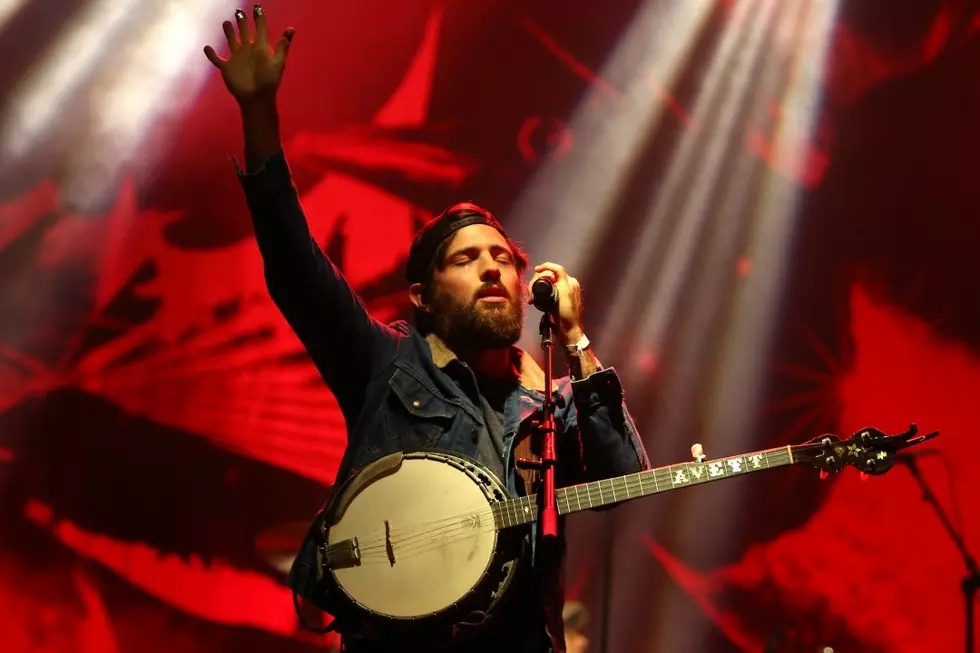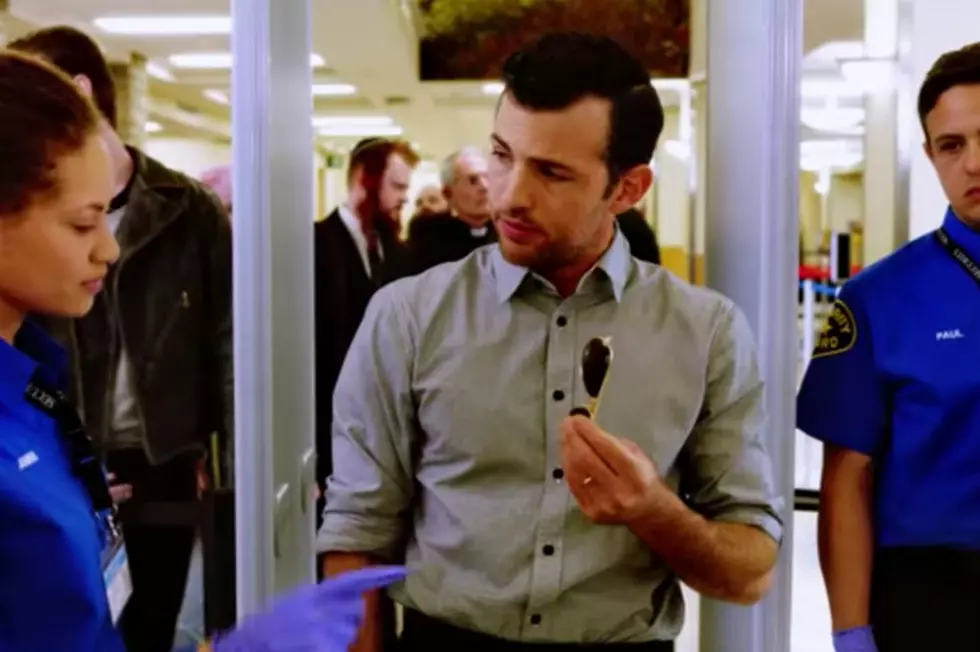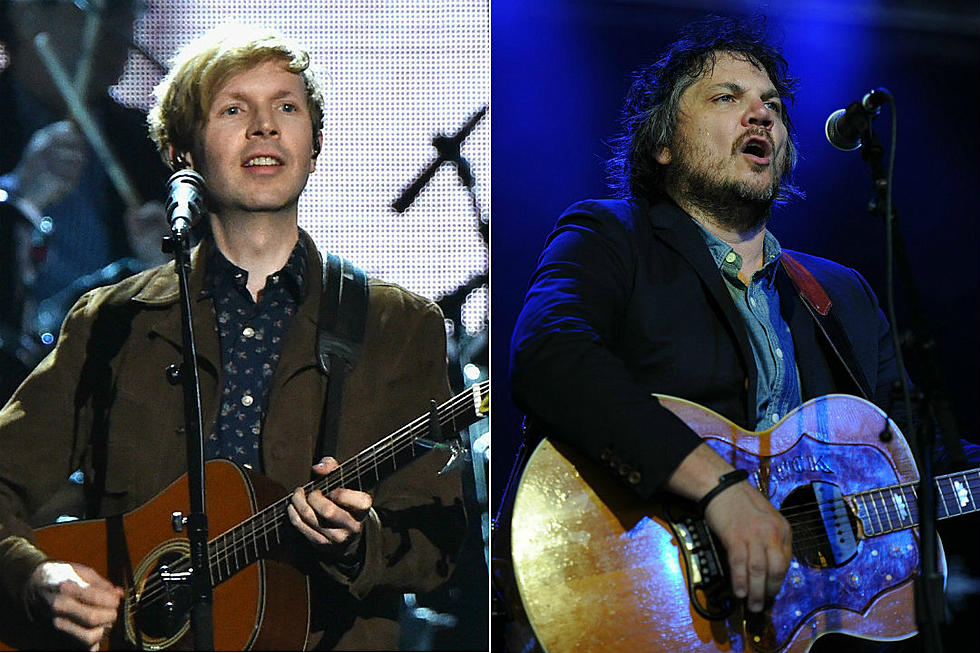
Scott Avett Discusses the Heart of ‘The Carpenter’ and the Avett Brothers’ In-the-Works Film – Exclusive Interview
The Avett Brothers are beloved, and rightfully so. The North Carolina band plays an honest-to-goodness banjo-and-cello Americana blend that is as genuine as it is good. Their faithfulness has earned them a dedicated fanbase, one eagerly awaiting ‘The Carpenter,’ the band’s sixth studio album. Diffuser.fm talked with Scott Avett about how the brothers inherited their parents’ work ethic, what it feels like to find the emotional seed of a song and how their decade-in-development documentary film is shaping up.
Listening to ‘The Carpenter,’ we get the feeling that that this, your sixth album, is maybe the most intimate that you guys have shared. How does that develop in your songwriting?
Well, some of the songs are relatively old. Some of them took maybe as much as seven or eight years to write. That mainly changed because, I guess, writing autobiographically I suppose, you had to live through certain things before you could finish the song that was about something or other. You start it and you say, “I can’t write this yet.” At the time, you really don’t know what to say about it.
Some came much quicker and more today. I don’t really know why that’s happened. We’ve tried to focus in on simplicity and clarity in songwriting and recording, and I do think we manage to keep things pretty clear in this new batch of recordings.
What are some of the things that have been lived through?
Sure, sure. Well, childbearing, illnesses, depressions -- and I don’t mean economically, I mean mentally. Also financial struggles, successes. Diverse nights where surprises can happen -- one night can be this climactic, beautiful evening that ends in despair and sadness, and the surprise in that. Watching places that you grew up in be totally changed. They’re really just evidence of living a little longer, seeing a little more and having a little more perspective on it. The layers that add up -- and that’s good for the depth of clarity, if that makes sense.
What do you mean by a depth of clarity?
An easy way to put it is if we had a lot of distorted guitars, and they were taking over everything and muddying up what the point of the song was, we may reassess. And over the years we’ve found that we framed lyrics in much more of an open space to allow them to live -- and clarity is also built in the time and space that we take to record the songs physically, and the length of time that we’ve spent listening to the songs as opposed to throwing it out there quick and trying to rush anything we can or move with speed. And the simplicity gives you such a definition of what the song is about, and it gives you less to hide behind. When Seth and I stopped playing in rock bands and just played banjo and guitar -- the first way the Avett Brothers were presented -- we had so little to hide behind. That was a big eye-opener for us, and we’ve been following our nose, following that lead.
Is there anything that you’re hiding behind now?
I’m sure. So many things that are so terrifying. I think with that attempt, like when try to do something, maybe sometimes you get credit for doing it. If I’m trying to show clarity, maybe I tell somebody like you that I’m trying to exemplify clarity, and you say, 'OK, you’re exemplifying clarity.' Well, the problem is maybe I’m trying to do it so I convince someone I’m doing it, but I’m the one that notices all the obscurity in it, all the fear, all the things I left out or hid from. And those are the things that I focus on. And I think most honest artists have to deal with that. And that’s something that’s a never-ending journey.
That’s something that comes through on the record, a feeling about the honesty of the struggle of maturing. Once again, it’s an attempt to be honest about it, you try so hard. You’re the one that has control of it, so you can only be honest or dishonest with yourself. So we work really hard to do that, and I always hope that we’re doing the best we can. But there’s always hindsight: Could we have done something more?
This is your sixth studio record, but you’ve done a number of live albums. You guys are pretty prolific, constantly touring. There’s your artistic self, but there’s also very much this craftsman, this carpenter if you would -- that’s making these things, that’s doing the work of making music. Can you tell us about that work ethic?
Sure. I think that’s probably more important than our ability or our talent. I think we’ve expressed our work ethic to a fault in the past, where we would work with an honesty and a diligence that just kind of overshadowed our ability, and for that reason we did make a lot of music early on in our career with no major label attention at all. And that work ethic is what got us playing live for so many people, and that came from growing up, being raised by a father that was a self-made, self-employed welder, self-made man. My mom was a schoolteacher, put herself though school while we were growing up, so I think work ethic and physical labor was a very important priority in our lives, as important as education was -- and really both one in the same, I can’t stress that enough. It’s probably the work, the importance of labor, is more important than what most of us will read. Understanding that discipline, and understanding that simplicity and that work, and the spirituality in that work, to be one with a task and do it in the appropriate amount of time that it takes to do it.
It has to be important to maintain the pace that we do, even though it’s been three years since we put out an album. We don’t stop writing. We have to stay disciplined to keep that work ethic going just to tour. We have to stay disciplined just to tour and stay out there and maintain our standards, and not take it out on other people when we’re fatigued or when we’re put out or stressed out. We have to maintain that discipline to our obligation to the people who come to experience that with us.
Can you tell us more about your songwriting process?
Just like when a tree grows, it comes out naturally, and it knows where to go. Gravity and all of the makings of science and nature. It knows how to come out, and there’s only one right way for it to come out.
And these songs, there’s usually several ways that it could be right, but there’s only one way that it’s going to end up. And we try to let them guide themselves and to be able to do that. You have to be able to talk about them and inventory them and be flexible enough to change until they mature into this documented and stamped piece of work. Seth and I talk about this a lot: If you’re writing a song, don’t write it too much.
You've described the triangular relationship between you, your songs and your fans. How do you know when a song is going to resonate?
The structure is secondary to the core inspiration, the emotional seed of a song. A good example is if you’re scared -- if you’re scared to put it out there, if you know that it’s going to be embarrassing, or telling, or put you in a vulnerable position -- a lot of times that probably relates to somebody, because we all have that.
The song being structured in a good way is about helping it translate to someone. The message or the words to the song, the sentiment or the feeling of the song, that’s something entirely different, that’s really the goal, that’s really the heart of the song. When that is there, you can feel it yourself. I can sometimes feel -- your eyes get kind of hot -- when I’m working on a song that somehow has come to me, and I’m just kind of testing it out or listening to myself play or recording it. You can feel the emotion building yourself, and you must feel that it probably does translate. It’s my job to take the chance of ‘Well, here it is.’
It seems that over your career you’ve found some fellow travelers. Over the past decade or so, it seems bluegrass-inflected, country-inflected indie music has really come on. Between Mumford and Sons, the Punch Brothers and you guys, of course, how’s it feel to be that? Would you call it a movement?
You know, I thought that movement started in the mid to late '90s. Before us, [it was] the Blue Rags, that were on Sub Pop, out of North Carolina. I think Old Crowe Medicine Show started in '98ish. Gillian Welch and David Rawlins were going strong in the late '90s. To me, that was the first of this “movement.”
We started doing what we were doing inspired directly by the Blue Rags first, and then when I discovered Gillian Welch and David Rawlins I started realizing, gosh, young people don’t only play hardcore music -- which is all that I was involved in, and I started feeling this liberation, and that’s when I picked up the banjo. I was totally clueless to this sort of thing.
What’s the fella’s name that plays the mandolin in the Punch Brothers? Chris Thile? I remember watching him at Crawfest as a 15-year-old kid and being like, there’s a great bluegrass band. The whole scene is young, but I feel like it started years ago. It really did, if it is a movement.
For the most part, people are just out there feeling what they feel or being inspired by what they’re inspired by. It’s a great movement because just like the '60s and '70s, there are so many great bands out there. The Fillmore scene, and all the great bands in the late ‘60s ... I feel like we’re a moment now where there’s just so many great bands out there. And it’s just very special.
To answer the question, it’s absolutely amazing and exciting to be able to be performing and out on the road with fellow musicians and bands out there doing it too and crossing paths with them all. I think it’s great camaraderie. Mumford and Sons, those fellas have come along and they’re doing great things, and it’s exciting to see them do what they do.
Do the Avetts have any plans for a documentary film?
We do. And in fact we’ve been shooting since, I guess, in all honesty, we’ve been shooting since 2002. It got more professional the more we’ve worked. But we’ve been shooting years and years of footage. We actually have a documentary that’s been more or less in motion for the past couple years, it’s a just a matter of how that will solidify and where does it stop. And has the story been written enough to do it? We could do a concert documentary, a brief momentary look at what we do. I think we’re looking at what we do, but I think we’re looking at the bigger picture.
You were just saying that you've gotta live through things if you’re making art that’s autobiographical.
Exactly. The story’s not over. There’s been some huge things that have happened over the years for us and have changed quite a bit. Hopefully that’s been documented enough and will continue to, and maybe it’ll come out. Maybe we won’t even be around for it either way. I’m sure it will come out and come to life when it’s supposed to.
Listen to the Avett Brothers' 'Live and Die' (Off of Upcoming Album 'The Carpenter')
More From Diffuser.fm









